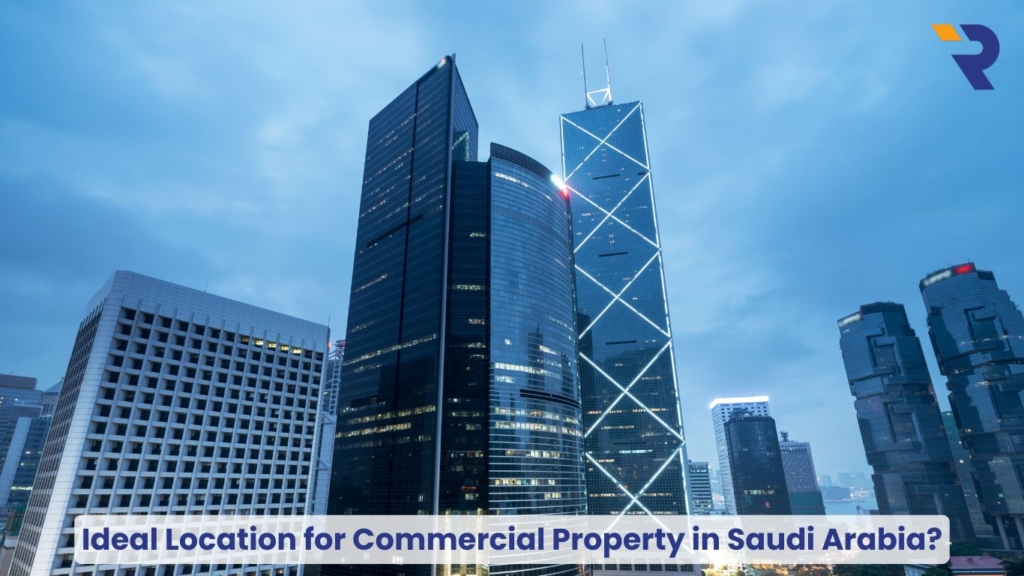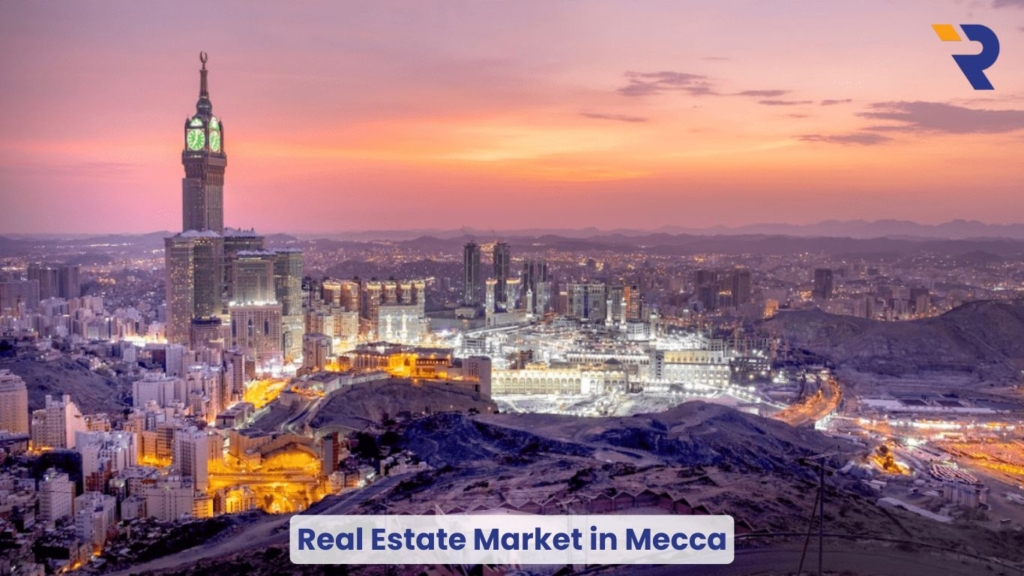The Importance of Location in Commercial Real Estate Investment Success
Choosing the right commercial property location in Saudi Arabia isn’t just a box to tick; it’s the bedrock of long-term business success. Whether you’re opening a retail shop, corporate office, logistics hub, or co-working space, location determines your foot traffic, brand visibility, logistics efficiency, and even staff retention.
Take for instance, Al Olaya in Riyadh — businesses here in 2024 reported up to 30% higher monthly revenue compared to similar businesses located in less trafficked suburbs. Why? Because customers see you. Partners find you. Employees get to you easily. That’s the power of a strategic location.
The location also plays a massive role in how your business is perceived. A high-end brand operating out of a poorly connected area can lose credibility and trust, especially among international clients.
Commercial success starts with smart positioning.
Read: How to Deal with Real Estate Fraud Cases in Saudi Arabia
Key Factors for Choosing the Ideal Commercial Property Location
Here’s a cheat sheet of strategic elements to consider when shortlisting locations:
- Accessibility: Proximity to metro stations, airports, highways (like Riyadh Metro and Eastern Ring Road), and parking spots
- Population Density & Demographics: Youth-centric zones, expat-friendly neighborhoods, or family-oriented districts based on your business type
- Infrastructure for Business Investment in Saudi Arabia: Reliable power, water, high-speed internet, sewage systems, and telecom coverage
- Surrounding Businesses: Do nearby businesses complement yours or compete? Complementary is better.
- Expansion Potential: Is the area being developed further under Vision 2030? Are there planned malls, tech parks, or mixed-use complexes?
| District | Accessibility | Demographics | Infrastructure | Nearby Businesses | Future Growth |
|---|---|---|---|---|---|
| An Nakheel | High | Middle-income | Excellent | Retail chains, schools | High |
| Al Izdihar | Medium | Mixed | Good | Clinics, offices | Moderate |
| Al Janadriyyah | Low | Sparse/Industrial | Developing | Warehouses, logistics | High |
Always match location strengths with your business model. A boutique cafe thrives in pedestrian-heavy zones, while a warehouse needs highway proximity, not a downtown spot.
Read: How Does Inflation Affect Real Estate Prices in Saudi Arabia?
Local Market and Competition Analysis
Before investing, decode the local real estate market like a pro:
- Demand: Check trends on platforms like Aqar, Bayut, or through the Real Estate Authority dashboard.
- Competition Density: Are you entering an oversaturated market? High competition might mean low margins unless your offering stands out.
- Price Trends: Look at both rental and sale prices over the past 12-24 months and project future trends using market reports.
- Urban Development Zones: Monitor Vision 2030-driven smart zones and public-private mega projects like NEOM and Diriyah Gate.
- Vacancy Rates: High vacancies may signal declining demand or regulatory issues in an area.
💡 Tip: If stores in an area are shutting down despite low prices, it’s often due to lack of demand or poor planning permissions — big red flag!
Also, conduct a SWOT analysis of the locality: Strengths, Weaknesses, Opportunities, and Threats.
Read: Factors Affecting Real Estate Prices in Riyadh
Legal and Regulatory Standards
Don’t let your dream location become a legal nightmare. Here’s your checklist:
- ✅ Legal Zoning Laws Saudi Arabia: Ensure the property is zoned for commercial use (not residential or mixed-use only)
- ✅ Tawtheeq: All leases must be registered here to be valid and enforceable under Saudi law
- ✅ Najiz: Check title deeds, ownership status, lien history, and any restrictions
- ✅ Ihkam: For regularizing and verifying unregistered or disputed lands
- ✅ Broker Check: Use the Real Estate Authority’s broker verification tool to avoid scams
- ✅ Permit Approvals: Ensure you can obtain business licenses for your category within that municipality
⚠️ Avoid any location that doesn’t have proper zoning permissions — even if it looks like a bargain. Regulatory bottlenecks can delay your business launch by months.
Read: Luxury Real Estate in Riyadh: Best Areas, Prices & Investment Insights
Types of Commercial Properties and Their Uses
Different property types perform best in different cities and districts. Here’s a breakdown:
- Office Spaces: Ideal for Riyadh’s King Abdullah Financial District, Al Sulaymaniyah, and parts of King Fahd Road — close to ministries and major corporate HQs
- Retail Shops: High-footfall zones like Al Olaya (Riyadh), Tahlia Street, or Corniche (Jeddah) are perfect for luxury and mid-range retail
- Warehouses & Logistics: Dammam, Al Khobar, and Rabigh serve as logistics hubs due to proximity to ports and industrial corridors
- Hotels/Mixed-Use Projects: Mecca and Medina are top-tier due to religious tourism, while NEOM and The Red Sea Project open futuristic investment avenues
🏢 Example: The commercial complex Jawharat Alfursan near Riyadh Airport offers mixed-use spaces with direct access to highways, airport logistics, and is part of the capital’s mega expansion plan.
Include property types like:
- Business Centers & Coworking Spaces
- Showrooms & Flagship Stores
- Medical Clinics & Polyclinics (e.g., in Al Muruj or Al Malaz)
Read: Luxury Real Estate in Jeddah: Best Areas, Prices & Investment Guide
Best Cities and Areas for Commercial Investment in Saudi Arabia
Let’s break down the best cities to invest in commercial real estate Saudi market-wise:
Riyadh
- Top Areas: Al Olaya, Al Sulaymaniyah, King Faisal, Al Malaz
- Why: Financial center, metro expansion, government HQs, tech parks
- Use Case: Office spaces, showrooms, business hubs, medical services
Jeddah
- Top Areas: Corniche, Al Rawdah, Al Andalus, Prince Sultan Street
- Why: Port city, Red Sea tourism, major retail + hospitality demand
- Use Case: Retail, cafes, boutique hotels, cultural centers
Dammam & Al Khobar
- Top Areas: Industrial City, Dhahran Techno Valley, Al Aqrabiyah
- Why: Logistics, manufacturing, proximity to Bahrain and Aramco
- Use Case: Warehouses, factories, R&D, cross-border trade offices
Mecca & Medina
- Why: Year-round footfall due to Umrah and Hajj, with future Vision 2030 expansions
- Use Case: Hotels, commercial plazas, religious tourism services, pilgrimage support businesses
📈 Vision 2030 plans include smart city development, entertainment zones, and tech incubators across Riyadh, Jeddah, and secondary cities like Abha and Tabuk.
Real Estate Saudi Offers Some of the Best Commercial Property Opportunities
At Real Estate Saudi, we specialize in helping investors:
- Pinpoint the best commercial property location in Saudi Arabia based on your business goals and industry
- Verify legal documents via Tawtheeq, Najiz, and Ihkam
- Compare areas based on accessibility, ROI, and demographic trends
- Guide investors on upcoming zones and property investment advice Saudi entrepreneurs can act on
- Help international clients understand Saudi property regulations and incentives
Whether you’re looking for commercial real estate in Riyadh, Jeddah, or Dammam, or wondering how to choose location for business in Saudi Arabia, we’ve got the insights, tools, and consultants to help you invest wisely. Real Estate Saudi offers free consultations backed by market data, zoning knowledge, and unmatched local experience. Whether you’re local or international, big or boutique, let’s help you invest smarter.
We also offer:
- Location shortlisting services based on your industry
- Legal documentation support in Arabic and English
- On-ground scouting and market surveys
Certain FAQs
What is the best city to invest in commercial real estate in Saudi Arabia?
Riyadh is currently the top choice due to government support, metro expansion, and Vision 2030 developments. Jeddah and Dammam also offer excellent returns in retail and logistics sectors respectively.
How do I check if a commercial property in Saudi Arabia is legally approved?
Use platforms like Tawtheeq for lease registration, Najiz for title verification, and Ihkam to regularize land ownership. These ensure the property is legally viable for commercial use.
What types of businesses need special zoning approvals in Saudi Arabia?
Healthcare clinics, restaurants, schools, and manufacturing units often require special zoning and permits. Always consult zoning laws and municipal regulations before investing.
Is foreign investment allowed in commercial real estate in Saudi Arabia?
Yes. Foreigners can invest in commercial properties under certain conditions, especially in designated economic zones. It’s essential to follow guidelines set by the Real Estate General Authority.
How can I compare commercial property locations in Saudi Arabia for ROI?
Look at accessibility, infrastructure quality, local demand, and development plans. Portal like Real Estate Saudi, Aqar, and Real Estate Authority reports can help you compare locations across major cities.





